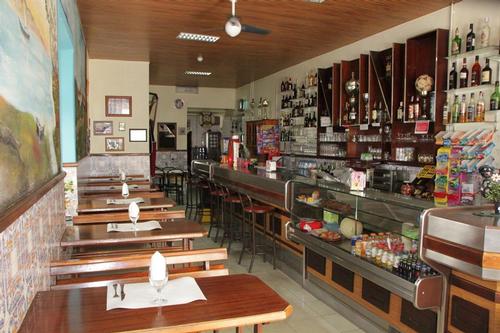The Naming Of Funchal, The Capital City Of Madeira
The island of Madeira was discovered by the Portuguese adventurer Joao Goncalves Zargo in 1418. The island was rich with natural resources and extensively forested. The latter fact was responsible for its name, Madeira, which in Portuguese means wood. Once identified, that this mid-Atlantic natural paradise was destined to become an important slice in Portugal's destiny was as good as inevitable as it provided a transit stop-off point for ships that were bound for the African coast.
Hence, a fledgling outpost was established at the site of a natural deep water anchorage on the island's south shoreline.
The new south coast colony began to grow and installed as its first Governor, Joao Goncalves Zargo. The colony's growth was partly due to its position on the global stage, part way between Europe and Africa and the soon to be discovered America. Notwithstanding that, it is also speculated that Zargo appreciated the possibility of profiting from the economic potential of the island's natural resources. Be that as it may, it is definite that Zargo was aware of the abundance of fennel herb plants that flourished in close proximity to his freshly established village. The humble herbs, part of the Foeniculum vulgare genus, were useful to the settlers in a number of ways, and carried the name of funcho. Indeed, the fennel plant was so widespread that the new community rapidly became known by the name Funchal.
That this plant should, in essence, be responsible for the naming of an adjacent habitation should not come as a surprise as this was not the first time in history that such an occurrence had happened.
In the ancient syllabic Greek script referred to as Linear B, the word for the fennel herb is maratuwo. John Chadwick, an acclaimed 20th century English linguist, cited maratuwo as the origin of the place name Marathon (meaning "place of fennel"), site of the Battle of Marathon which took place some 500 years before Christ.
Added to this, in the Portuguese Encyclopedia it is detailed in an article by Maximiliano de Lemos, a 19th century professor of modern medicinal history at the University of Porto, that they were a number of places in Portugal that bore, or previously bore, the name of Funchal.
In recent times, the Chronography of Portugal Mainland and Islands references two dozen places and villages that are veritably coupled in some way with the Funchal name.
Of distinctive note is the village of Ameixoeira which is situated about 6 kilometers from Lisbon in the county of Olivais, in the parish of Lumiar. This otherwise nondescript village is written of in the wide-ranging Ancient and Modern Portugal, by Pinho Leal.
The Ancient and Modern Portugal work is loosely referred to as a dictionary. To be pedantic, it comprises of 12 self contained volumes detailing facts of places in Portugal, sorted alphabetically by name of towns, villages and parishes. Every individual entry is sprinkled with information on the monuments, significant events, anniversaries, outstanding citizens and the genealogy of influential families that have been linked to each location. Many of the details are founded upon ecclesiastical records. Still, its correctness is frequently treated with doubt as it is also known to include information that was recorded from the personal musings of individual dignitaries connected to the church.
Started in 1873, Pinho Leal dedicated himself to his literary work until his demise in 1884. Unfortunately, he did not live to finish the work. The final volume was completed by Pedro Augusto Ferreira in 1890.
Under the listing for the village of Ameixoeira, it informs us that it held an earlier name of Funchal. It seems that there was a small chapel known as Our Lady of Funchal, which served as a parish church until 1664 when it was extended. The original, simple chapel is thought to have been founded in celebration of a Christan victory over the Moors that was fought on the exact place the foundation stone was laid. Going further back to earlier dynasties, the spot is reported to have been referred to by ancient Goths and Moors as Mixo ou Mixio.
No matter what the veracity of the Mixo ou Mixio connection, it demonstrates the argument that place names regularly develop over time and their exact origins are often woven into the tangle of passing time, the exact nature of which is beyond steadfast, unambiguous certainty.
Still, that the fennel herb should give raise to a number of places carrying its name is not unanticipated considering the position that the herb has enjoyed throughout human history. In point of fact, at the present time, fennel is widely harvested for its palatable, distinctly flavoured leaves and fruits and it is considered to have numerous efficacious properties.
Historically, the Florence fennel is perhaps the most important constituent ingredient for absinthe, a pleasing French liquor that has its heritage linked to a restorative concoction. Whilst other fennel extracts are claimed to calm digestive disorders, improve eyesight, help alleviate high blood pressure and treat incessant coughs. In addition, finely ground fennel is said to bestow immunity against fleas.
In addition to this, other portions of the different fennel herb variants have given humankind large-scale culinary uses throughout the millennia, particularly in the Indian subcontinent - the area most involved its commercial production today.
So, Funchal in Madeira may currently be the most famous city that holds that name. If the capital city of Madeira will defend that distinction in the years yet to come is anyone's guess. However, we can assert with certainty that it was undeniably not the first city that owes its name to the presence of the humble fennel plant.
© All Rights Reserved. Republishing this work, or an extract from it, without the author credit, the active links and this copyright notice remain intact is not allowed.
Robert James prides himself on being the main inspiration for the informative Madeira travel guide. Now involved mainly with Internet based work, he has been a freelance writer for over thirty years and has had numerous works featured in the trade press. You can see more about the charming destination of Funchal on this informative website. Jimmy James is founding member of the RazorJetto team.
Article Source: http://EzineArticles.com/?expert=Robert_P_James


